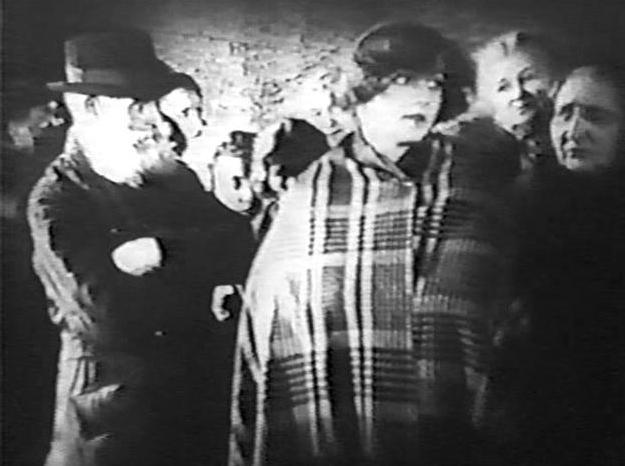
| 85 |

|
| 86 |

|
| 87 |

|
| 88 |

|
| 89 |

|
| 90 |

|
| 91 |

|
| 92 |

|
| 93 |
|
| 94 |
|
| 95 |
|
| 96 |
|
| 97 |
|
| 98 |
|
| 99 |
|
| 100 |
|
2008: Rank | Title | Year
All reviews © Nick Davis
Author's permission must be granted in writing for any duplication or publication.
Browse Films by
Title / Year / Reviews
Nick-Davis.com
Home / Blog / E-Mail
 #93: The Joyless Street
#93: The Joyless Streetaka Die freudlose Gasse in 2008: 67; in 2006: 82; in 2004: 82 dir. G.W. Pabst, 1925 scr. Willy Haas and F.H. Lyon; cin. Robert Lach, Curt Oertel, and Guido Seeber with Asta Nielsen, Greta Garbo, Werner Krauss, Henry Stuart IMDb // Leave a Comment In 100 Words: Perhaps it's perverse to retain this film over Murnau's Last Laugh or Pabst's subsequent Pandora's Box, which bookend and brightly polish the grotty, despondent social realism that The Joyless Street perfected in Weimar Cinema. Less flashy in technique than the Murnau and more consistent in its storytelling economy than Pandora, this dark melodrama of postwar Vienna interweaves multiple plots about characters struggling to supersede or just survive their conditions of moral and material siege. The social breadth and episodic detail are novelistic, but the camerawork attains that disenchanted vividness we expect from Weimar. The under-celebrated Nielsen and neophyte Garbo entrance. Food for Thought: Almost too many superb resources for Weimar Cinema to mention. My personal inroad to The Joyless Street arrived via Patrice Petro's Joyless Streets (Princeton Universty Press, 1989), which privileges modes of gendered spectatorship and manipulations of melodramatic convention in its argument, without relinquishing the more "political" contexts that usually predominate in scholarly handlings of German cinema between the world wars. You can also find my friend Sara Hall's brilliant essay about the film, "Inflation and Devaluation: Gender, Space, and Economics in G.W. Pabst's The Joyless Street," recently reprinted in Noah William Isenberg's anthology Weimar Cinema: An Essential Guide to Classic Films of the Era (Columbia University Press, 2009). |
| Permalink | Top 100 | Home | Blog |